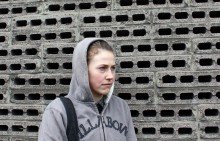This volunteers’ week (1-7 June) the Samaritans of Bournemouth and District are joining volunteer organisations across the UK to show how giving your time makes a huge difference to the lives of others.
Echoing the findings of its Dying from Inequality report released earlier this year, Samaritans is highlighting the particular need for emotional support for those who are disadvantaged, as they are more at risk of suicide.
Samaritans Chair Jenni McCartney, who has been a volunteer for more than thirty years said: “I would say that in many of the calls I take, deprivation is a factor. It could be anything from debt to housing issues, job insecurity to relationship breakdown or bereavement. There is often some level of disadvantage, which can aggravate those challenges and make people more vulnerable to suicidal thoughts.
Jenni is one of more than twenty thousand Samaritans volunteers who offer support to anyone who may be feeling overwhelmed, by phone, email, text, letter or face to face.
Across Dorset, Samaritans volunteers in can also be found everywhere from schools, workplaces, communities, charity shops, hospitals, and custody suites.
Since September 2015, Samaritans has offered calls to its 116 123 number for free, removing any financial barrier to calling, with support from telecoms companies and the Big Lottery Fund. Last year, its volunteers made a difference by responding to more than 5.7 million calls for help, an increase of 300,000 on the previous year.
Dr Andrew Mayers, Principal Academic at Bournemouth University and Patron for the Samaritans of Bournemouth and District said: “Samaritans volunteers can make the difference between someone getting through tough times, or not. But we’re just one part of the equation. Suicide is an inequality issue. For example, if you are male, middle-aged and from the poorest background you are ten more times at risk of suicide than if you’re from the richest. We want to see everyone from politicians and policy makers to employers and educators working together to reduce inequality and ensure that resources are targeted at those who are most at risk.”







